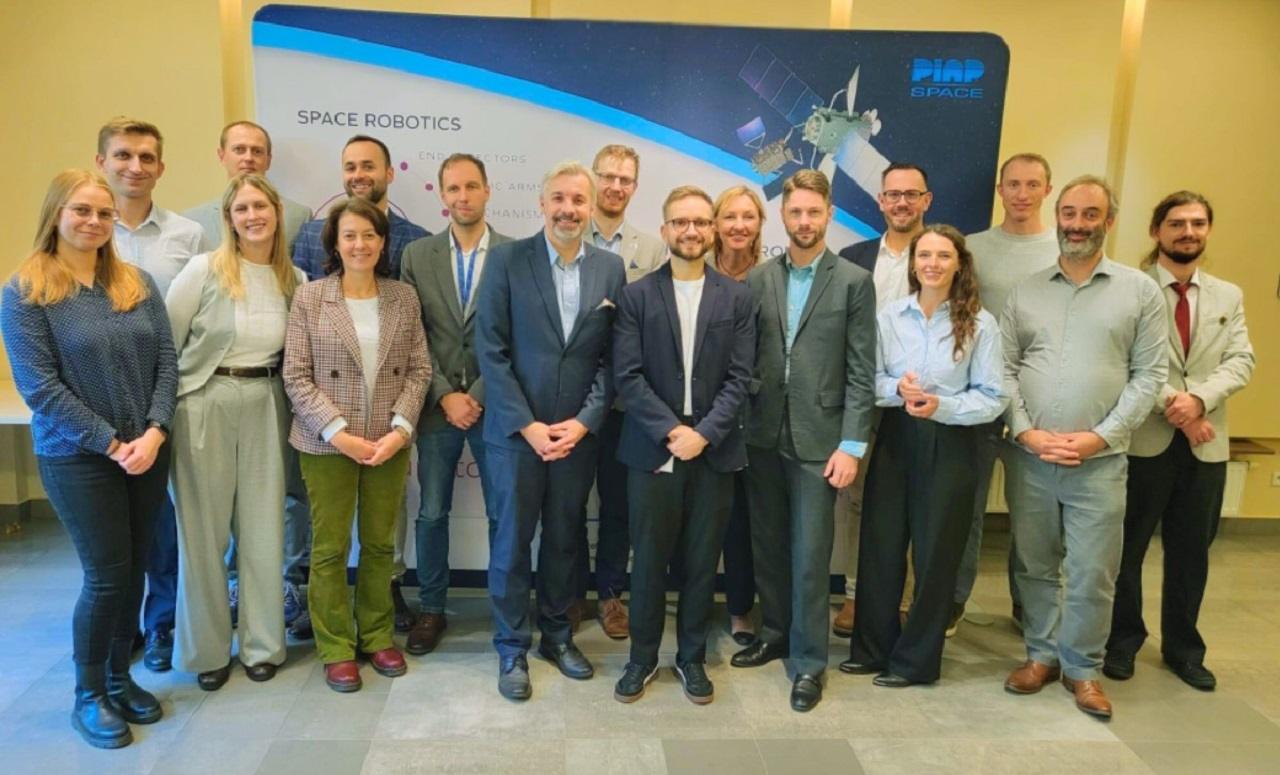As we look toward 2025, the landscape of outsourcing in Poland is rapidly evolving, driven by technological advancements, economic factors, and the strategic needs of global companies. Outsourcing to Poland in 2025 is expected to solidify its position as a premier destination for various outsourcing services, including IT outsourcing Poland, software development Poland, nearshoring Poland, and BPO Poland. This article explores the key reasons why Poland remains an attractive hub for outsourcing, the main industries involved, cost advantages, talent availability, infrastructure, potential risks, and successful case studies that illustrate the ongoing growth and reliability of the Polish outsourcing market.
Why Poland is a Top Outsourcing Destination
Poland has established itself as one of Europe’s leading outsourcing hubs, owing to its strategic geographical location, highly skilled workforce, and competitive cost structure. The country’s geographical proximity to Western Europe offers significant logistical advantages, reducing transportation time and costs, thus making nearshoring Poland a highly attractive option for European companies seeking to outsource their IT and business processes. Furthermore, Poland boasts a young, well-educated workforce with a strong emphasis on STEM education, which ensures a continuous supply of skilled professionals capable of handling complex IT projects, software development Poland tasks, and BPO Poland operations. The country’s progressive economic policies and EU membership facilitate a stable business environment, fostering foreign investment and growth in the outsourcing sector. Poland’s multilingual workforce, with fluency in English, German, French, and other languages, enhances its appeal as an outsourcing destination, enabling seamless communication with international clients and stakeholders.
Key Industries for Outsourcing
The primary industries benefiting from outsourcing to Poland include information technology, finance, healthcare, and manufacturing. IT outsourcing Poland and software development Poland are particularly prominent, with numerous multinational companies establishing their R&D centers and software engineering teams in Polish cities such as Warsaw, Kraków, and Wrocław. The country’s IT sector is characterized by a vibrant tech startup ecosystem, a strong emphasis on innovation, and a broad talent pool specializing in software engineering, cybersecurity, data analysis, and AI. Additionally, BPO Poland is a significant contributor to the economy, providing customer service, finance and accounting, HR, and other back-office functions. The healthcare industry also benefits from outsourcing, especially in medical transcription, telemedicine, and health data management, which are increasingly crucial in today’s digital health landscape. Manufacturing companies leverage outsourcing to Poland for supply chain management, logistics, and quality control, capitalizing on Poland’s strategic location within Europe.
Cost Advantages and ROI
One of the most compelling reasons for outsourcing to Poland in 2025 is the cost advantage it offers to international companies. Although labor costs in Poland are higher than in some Asian outsourcing destinations, they remain significantly lower than Western European countries, providing a balanced approach to cost-efficiency and quality. Outsourcing to Poland allows companies to reduce overhead costs associated with hiring, infrastructure, and technology investments, while still maintaining high standards of service delivery. The ROI for companies engaging in nearshoring Poland is often realized through increased operational efficiency, faster project turnaround times, and access to high-quality talent. Moreover, the stable economic environment and the strong legal framework in Poland contribute to predictable costs and risk mitigation, ensuring that investments in outsourcing initiatives are sustainable and profitable over the long term.
Talent Availability and Skill Sets
Poland’s educated workforce is one of the country’s most significant assets for outsourcing. The country produces thousands of IT graduates annually, equipped with skills in software engineering, data science, AI, and cybersecurity. Universities such as the Warsaw University of Technology, AGH University of Science and Technology in Kraków, and Wrocław University of Science and Technology are renowned for their technical programs, consistently supplying a highly competent talent pool. The Polish workforce is not only technically skilled but also highly adaptable, with many professionals fluent in multiple languages, including English, German, and French. This multilingual capability facilitates communication with global clients and increases the effectiveness of nearshoring Poland. Additionally, the country’s emphasis on continuous professional development and certifications ensures that the talent pool remains current with the latest industry standards, making Poland a reliable partner for long-term outsourcing strategies.
Infrastructure and Technological Readiness
Poland has invested heavily in its infrastructure, making it a technologically advanced country well-suited for outsourcing activities. Major cities like Warsaw, Kraków, and Wrocław boast modern office spaces, high-speed internet connectivity, and robust transportation networks. The country’s digital infrastructure supports a wide range of outsourcing services, including software development, IT support, and BPO functions. The widespread availability of co-working spaces, tech parks, and innovation hubs further enhances the attractiveness of Poland for outsourcing companies. The government’s initiatives to promote digital transformation, cybersecurity, and smart city projects have significantly improved Poland’s technological readiness, ensuring that companies can rely on secure, efficient, and scalable infrastructure for their outsourcing needs. Furthermore, Poland’s commitment to green energy and sustainable development aligns with the corporate social responsibility goals of many multinational firms, adding an additional layer of appeal to the country’s technological landscape.
Risks and Mitigation Strategies
Despite its many advantages, outsourcing to Poland in 2025 comes with potential risks that companies need to consider. These include political and economic changes, legal and regulatory uncertainties, and geopolitical tensions within the region. To mitigate these risks, companies should engage with local legal experts to navigate the regulatory landscape, especially regarding data protection laws such as GDPR. Establishing strong contractual agreements and choosing reputable outsourcing partners can also help reduce operational risks. Additionally, companies should diversify their outsourcing portfolio to avoid over-reliance on a single destination and implement comprehensive cybersecurity measures to protect sensitive data. Regular risk assessments, continuous monitoring of geopolitical developments, and maintaining open communication channels with local partners are essential strategies to ensure the resilience of outsourcing operations in Poland.
Case Studies of Successful Outsourcing
Several multinational corporations have successfully leveraged outsourcing to Poland, demonstrating the country’s capabilities as a reliable outsourcing hub. For example, a leading European bank established a nearshore financial operations center in Warsaw, resulting in improved process efficiency, cost savings, and enhanced compliance with European regulations. Similarly, a global technology firm set up a dedicated software development team in Kraków, which contributed significantly to the company’s product innovation and time-to-market reduction. Another notable case involves a healthcare provider outsourcing medical transcription and data management functions to a BPO Poland firm, leading to improved service quality, reduced turnaround times, and greater scalability. These case studies exemplify how strategic outsourcing to Poland can generate tangible business benefits, including cost savings, access to top talent, and operational agility.
Conclusion
Looking ahead to 2025, outsourcing to Poland remains an attractive and strategic choice for companies seeking to optimize their operations, reduce costs, and access a skilled talent pool. The country’s well-developed infrastructure, stable economic environment, and regional proximity to Western Europe make it an ideal nearshoring destination. Moreover, the ongoing investments in digital infrastructure and technological readiness ensure that Poland will continue to evolve as a top outsourcing hub. While potential risks exist, they can be effectively managed through prudent planning and local partnerships. As the outsourcing landscape in Poland matures, companies that capitalize on these opportunities will likely gain a competitive edge in their respective markets, making Poland a key player in the global outsourcing ecosystem in 2025 and beyond.
Frequently Asked Questions
What are the main benefits of outsourcing to Poland?
Outsourcing to Poland offers numerous benefits, including access to a highly skilled and multilingual workforce, cost-effective solutions compared to Western Europe, strategic geographical location for nearshoring, and a stable economic and political environment. Additionally, Poland’s advanced infrastructure and emphasis on innovation make it a reliable partner for various outsourcing needs, from IT and software development to business process outsourcing (BPO).
How does Poland compare to other outsourcing destinations?
Compared to other outsourcing destinations such as India or Southeast Asia, Poland offers closer proximity to Western Europe, reducing logistical challenges and facilitating real-time communication. The country also boasts a European legal framework, high standards of data security, and a skilled workforce with proficiency in multiple languages. While costs may be higher than Asian destinations, the quality, cultural affinity, and ease of collaboration often outweigh the differences, making Poland a preferred nearshoring option for European companies.
What legal considerations should be taken into account?
When outsourcing to Poland, companies must consider local regulations related to data protection, such as GDPR compliance, intellectual property rights, employment laws, and contractual obligations. It is advisable to work with local legal experts to draft comprehensive agreements, ensure compliance with all applicable laws, and establish clear dispute resolution mechanisms. Understanding the legal landscape helps mitigate risks and ensures smooth, compliant operations in the outsourcing process.









